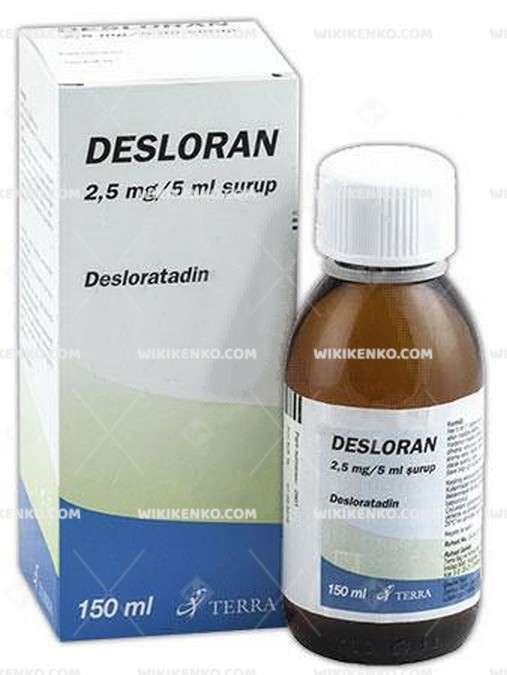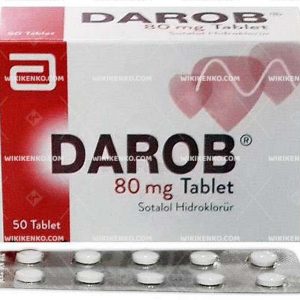Desloran Syrup
Allergies can be a source of discomfort, causing symptoms like sneezing, watery eyes, itching, and runny nose. Skin reactions, including itching and hives, can also be challenging to manage. In such cases, Desloran Syrup steps in as a trusted ally. Let’s delve into the world of Desloran Syrup, understanding its uses, mechanisms, dosages, and more.
| Dosage form | |
|---|---|
| Pack size | |
| Potency | 2.5 Mg/5Ml 150Ml |
Assuming your emergency circumstances for this product, visit Urgent Quotation page. Besides, for any pharmaceutical questions, please ask us in the comments section.
Description
Potential of Desloran Syrup
Desloran Syrup contains the active ingredient desloratadine, a potent antihistamine. This medication serves a dual purpose, effectively addressing the symptoms of allergies and skin reactions.
Versatile Applications
Desloran Syrup finds its footing in the treatment of various conditions:
1. Allergic Rhinitis Relief: This syrup is a beacon of hope for those combating the bothersome symptoms of allergic rhinitis, be it seasonal or perennial. It provides much-needed respite from nasal and non-nasal manifestations. The targeted age group includes patients aged 2 years and older.
2. Battling Chronic Idiopathic Urticaria: Chronic idiopathic urticaria, characterized by persistent hives and unrelenting itching, can be particularly distressing. Desloran Syrup, however, offers a ray of hope. It not only relieves itching but also reduces the number and size of hives. Like allergic rhinitis, it is suitable for patients aged 2 years and older.
The Science Behind Desloran Syrup
Desloran Syrup operates as a long-acting, tricyclic, non-sedating, selective peripheral histamine H1-receptor antagonist. Its primary function is inhibiting the release of pro-inflammatory mediators from mast cells and basophils. Here’s a simplified explanation of how it works:
Histamine, a key player in allergic reactions, triggers various distressing symptoms by binding to histamine receptors. Desloratadine, the hero of our story, specifically targets and blocks the H1 receptor for histamine. By doing so, it prevents the activation of cells by histamine, curbing the release of other inflammatory chemicals. What sets Desloran apart from its counterparts is its inability to cross the blood-brain barrier, making it non-drowsy and ideal for everyday use.
Side Effects
Desloratadine, while highly effective, may occasionally bring about side effects. These side effects are generally mild and may include dry mouth, sore throat, muscle pain, drowsiness, tiredness, or menstrual pain. However, it’s essential to note that not everyone experiences these effects. If you encounter unusual symptoms or discomfort, it’s advisable to seek medical advice promptly.
Dosage Guidance
Optimal results from Desloran Syrup hinge on following the recommended dosage with precision. Dosage varies based on the patient’s age:
- Child 6-11 months of age: 2 ml once daily
- Child 1-5 years of age: 2.5 ml once daily
- Child 6-11 years of age: 5 ml once daily
- Adults & > 12 years of age: 10 ml once daily
Always heed the guidance of your healthcare provider or pharmacist to ensure the correct dosage for your specific needs.
Pregnancy and Breastfeeding
The use of Desloran Syrup during pregnancy should be approached with caution. While no well-controlled studies are available for pregnant women, it should be used during pregnancy only if clearly needed. Furthermore, Desloran Syrup does pass into breast milk. Therefore, consulting your healthcare provider is imperative before using this medicine while breastfeeding. Open communication with your healthcare provider is crucial, especially if you are pregnant or breastfeeding, to make informed decisions about your healthcare.
Drug Interactions
Desloran Syrup’s active ingredient, desloratadine, should not be used alongside medications containing loratadine. Additionally, this medication has the potential to interfere with specific lab tests, such as allergy skin testing, potentially yielding false results. If you are taking other medications, it is advisable to discuss potential drug interactions with your healthcare provider for the best course of action.
In Conclusion
In the realm of allergy relief and skin reaction management, Desloran Syrup stands as a steadfast choice. With its well-defined applications, minimal side effects, and precise dosages, it offers a reliable path to relief. However, always remember that medical decisions should be made in consultation with your healthcare provider. Desloran Syrup, your trusted ally in the battle against allergies and skin reactions, awaits your prescription.
Use the form below to report an error
Please answer the questions as thoroughly and accurately as possible. Your answers will help us better understand what kind of mistakes happen, why and where they happen, and in the end the purpose is to build a better archive to guide researchers and professionals around the world.
The information on this page is not intended to be a substitute for professional medical advice, diagnosis, or treatment. always seek the advice for your physician or another qualified health provider with any questions you may have regarding a medical condition. Always remember to
- Ask your own doctor for medical advice.
- Names, brands, and dosage may differ between countries.
- When not feeling well, or experiencing side effects always contact your own doctor.
Cyberchondria
The truth is that when we’re sick, or worried about getting sick, the internet won’t help.
According to Wikipedia, cyberchondria is a mental disorder consisting in the desire to independently make a diagnosis based on the symptoms of diseases described on Internet sites.
Why you can't look for symptoms on the Internet
If diagnoses could be made simply from a textbook or an article on a website, we would all be doctors and treat ourselves. Nothing can replace the experience and knowledge of specially trained people. As in any field, in medicine there are unscrupulous specialists, differences of opinion, inaccurate diagnoses and incorrect test results.




Reviews
There are no reviews yet.